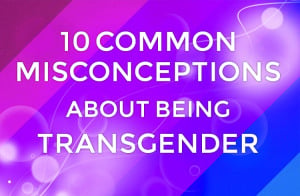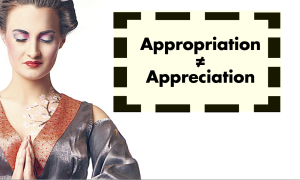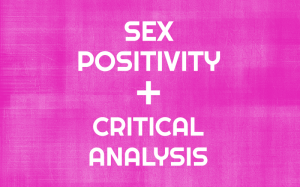Lately, I’ve noticed a frightening Internet trend. It’s the #WomenAgainstFeminism movement.
And it’s essentially exactly what it sounds like: women blogging and tweeting about things that they believe are in line with the feminist movement and then proclaiming that they are not feminists.
Then there are celebrities like Shailene Woodley, the young female lead in movies like Divergent and The Fault in Our Stars, who have publicly decried feminism in the media.
Of course, it is completely valid for someone not to identify as a feminist. That’s their own personal choice.
But an important question remains: Do these anti-feminists really know what they’re talking about? Do they understand what feminism is, or are they ascribing their beliefs to antiquated or invented stereotypes about the movement?
And more importantly, how can we talk to non-feminists and anti-feminists about feminism in a non-confrontational, healthy way?
The ‘F’ Word
Feminism can be a scary word for some people.
There are a lot of myths about what it means to be a feminist – that feminists hate men, eschew “girly” things like dresses and heels, look down on stay-at-home moms, and want to take all the world’s power out of men’s hands.
And none of them are true – at least not universally.
Sure, there are outliers that fit the stereotype of every group. Some people who call themselves feminists certainly hate men. And yes, some feminists do not want to wear four-inch heels that make their toes bleed. But man-hating, power-hungry, totalitarian nastiness is not what feminism is about.
Personally, I like Sam Killerman’s definition: “to create a society in which individuals’ genders don’t restrict them from an equitable shot at success and happiness.”
What people often get confused with feminism is misandry, which means the hatred of men. Like I mentioned earlier, there are some misandrists who also identify as feminists. But they are the minority.
I know that. You probably know that. But how do we explain that to non-feminists without coming off as defensive or insulting?
To be honest, it’s not easy. But we have to try.
Real change will not come unless we engage the opponents of our ideals in meaningful, centered, and realistic discussion.
So how do we do that when it seems like the very people we are trying to reach have been completely brainwashed by the patriarchy and society?
Maybe, before we can answer that question, we need to look at our audience.
Ignorance Is Not Bliss
Back to the question of whether anti-feminists are educated about what the movement really stands for.
Based on my research and experience, it appears that the answer is no. Most anti-feminists seem to be gravely uneducated about what feminism actually is.
Instead of despairing upon this realization, I look at it as a positive. Instead of shaming uneducated anti-feminists for not agreeing with us, we should make educating them and clearing up misconceptions a top priority.
So, how do we do this without alienating or antagonizing the very people we are trying to have a discourse with?
Using tweets and posts from the Women Against Feminism movement as a sample, I have divided common anti-feminist responses into a few key themes (all quotes below are taken word for word from the Women Against Feminism blog and Twitter feed).
Let’s look at each of these themes and discover how best to approach them from a feminist standpoint – without being condescending and without scaring off our audience.
Theme #1: Utter Confusion
Many anti-feminists claim that they are in search of values that are already clearly in line with feminist ideals. Take equality, for instance: “I don’t need feminism because I believe in what they stand for, like equality and respect for all people.”
Instinctually, my initial reaction would be to roll my eyes and say, “Wait, what? So you are saying that you don’t believe in feminism because you already believe in what it stands for? Think that over one more time…”
However, this response will inevitably lead to the recipient becoming defensive.
A better way to approach this situation is explain exactly how feminism does encompass their beliefs.
This way, even if they still don’t want to identify as a feminist, they will at least come to the realization that they have some common thread with the movement.
It’s a step in the right direction.
Theme #2: Misinterpretation Based on Imaginary Ideas of Feminism
Some anti-feminist women have obviously heard misconceptions about feminism before, but probably have never taken the time to find out what it really means, such as the woman who proclaimed, “I don’t need feminism because I believe in equality, not entitlements and supremacy.”
Another common theme were comments such as “I like my husband” or “I’m not a lesbian, so I don’t hate men.”
Even Time Magazine quoted Shailene Woodley saying, “I think the idea of ‘raise women to power, take the men away from the power’ is never going to work out because you need balance.”
Okay, let’s take a step back. Take a moment to breathe. And remember just to state the facts.
Go back to the core definition of feminism, and take it from there.
You might try:
“The feminist movement does not, and has not ever, acted as a mechanism to depose men of all power. This is simply incorrect. Feminists fight to divide the power more equally.”
“Enjoying the company of men, having male friends, or loving men does not make you any less of a feminist.”
Speak calmly, but firmly, and suggest that they take a look at Jessica Valenti’s book Full Frontal Feminism or one of your favorite Everyday Feminism articles.
Theme #3: Jokesters
Others choose to make the whole concept into a joke.
For example, one woman tweeted, “I don’t want men to treat me like equals. Have you seen how men treat each other?”
In these types of situations, it’s good to have some key facts in your back pocket – and try to jumpstart a discussion.
In response to the woman above, I would say, “Why yes, I have seen how they treat each other. They award 23 cents more on the dollar to their male coworkers over females, for exactly the same work. I’d like to get in on that extra cash! Wouldn’t you?”
If nothing else, this might start a conversation, instead of letting the topic die off with a joke.
Theme #4: Combative Language
Many others espouse incorrect – and sometimes extremely strange – versions of feminism that are so whacky, I can barely believe they are real.
One woman on the Tumblr site says, “I don’t need feminism because…feminists think that sex workers like me deserve to be raped and murdered for collaborating with ‘the patriarchy.’ They fight to pass laws that put sex workers in danger to punish us.”
Or there is this skewed logic: “I am a permanently disabled veteran — because of what feminists did to the U.S. Military. We can’t do all what men do.”
And some assertions are downright crude, like the following statement mocking feminist affirmations: “I need feminism because I need an excuse to be a drunk slut and cheat on my boyfriend.”
Sometimes, people say things that are so off-base, so outlandish, and so offensive that they make you want to tear your hair out. But don’t. You have better things to do with your time.
So what can you do when confronted with someone who is just spewing untruths at you without remorse or consideration for the truth?
This one is particularly hard.
The thing that I take issue with is not only the ignorance, but the lack of attempt at educating oneself. When abusively putting down a worldwide movement that stretches across all nationalities, genders, sexual orientations, ages, and religions, at least know what you are talking about.
As fellow Everyday Feminism writer Melissa A. Fabello explains in her article “The Pain of Being Feminist in an Anti-Feminist World,” sometimes the best option is just to walk away.
There are some people who you are just never, ever going to get through to. In these cases, your energy is simply better spent elsewhere.
Not to mention that you shouldn’t have to endure ridicule and disrespect from someone who is not willing to even consider your point of view. It’s okay to practice self-care and just walk away from an antagonist to save yourself the time and effort.
Everyone Has the Right Not to Be a Feminist
Look: Everyone has the right to be who they are and to believe the things they want to believe. This is a core value of feminism itself.
And especially because of the history of racism in the movement, many Women of Color choose to eschew the feminist label in favor of another descriptor for the gender equality movement.
Furthermore, as hard as it may be for some of us to believe, there are women out there who are educated – who understand perfectly what feminism is about – and still don’t agree with it. So if someone really, truly does not ascribe to the principles of the movement – provided they actually know what those are – then they have every right to proudly proclaim “I am not a feminist!”
And guess what? We should all respect their right to do so.
That, I believe, is one key to helping anti-feminists understand the openness and beauty of the movement. By allowing compassion for those who do not believe the same way that we do, we can demonstrate what feminism truly means.
It’s hard. Believe me, I’ve struggled with it. But the plain truth is that some people are raised in a way that simply gives them a different mindset than you – and nothing you can say will change that.
On occasion, you can say all the right things, introduce all the right literature, and have them meet all the right people – and you still won’t change their minds. And that means that it is time to let go and concentrate on making a change where you can be more helpful.
***
The common ailment that we, as feminists, must fight against is a deep ignorance about what feminism actually stands for – especially how feminism is rooted in equality for all people. And because so many people out there are uneducated on the subject, there’s a lot of work to be done.
If you had asked me if I was a feminist ten years ago, I’m honestly not sure how I would have answered. But I’ve learned so much from my peers, from studying feminist texts, and from learning the history of the gender equality movement. And for me, it’s been transformative.
You can all make that same difference in someone’s life.
I want to use this platform to challenge each and every one of you to have a meaningful discussion with just one person who is conflicted about, or even dead-set against, feminism in the next month.
You never know – you could change someone’s life forever.
[do_widget id=”text-101″]
Danica Johnson is a Contributing Writer at Everyday Feminism and the Communications Manager at the Coalition on Human Needs, an alliance of national organizations working together to promote public policies addressing the needs of low-income and other vulnerable populations. Living in Washington, DC, this West Coast native uses her free time to write for her blog Duckyfem, practice yoga and spend as much time with animals and in nature as possible. Follow her on Twitter @duckyfem and read her articles here.
Search our 3000+ articles!
Read our articles about:
Our online racial justice training
Used by hundreds of universities, non-profits, and businesses.
Click to learn more
Most Read Articles
- « Previous
- 1
- …
- 30
- 31
- 32




















